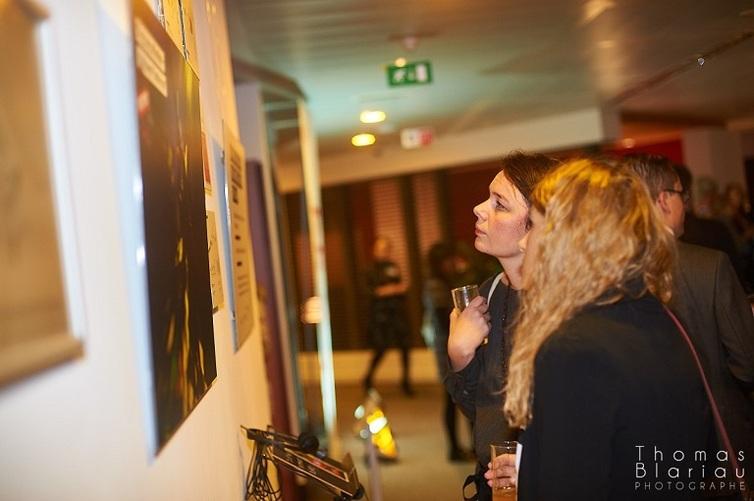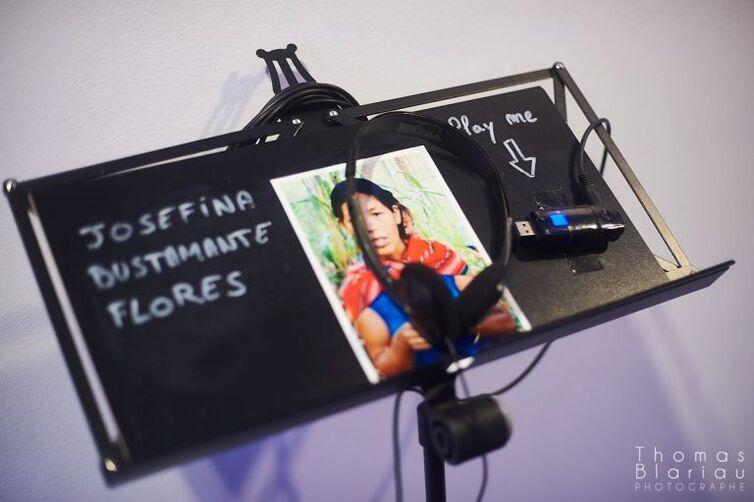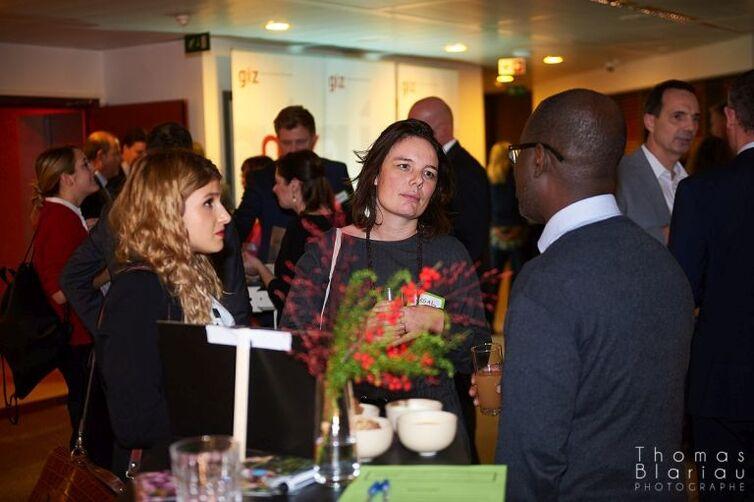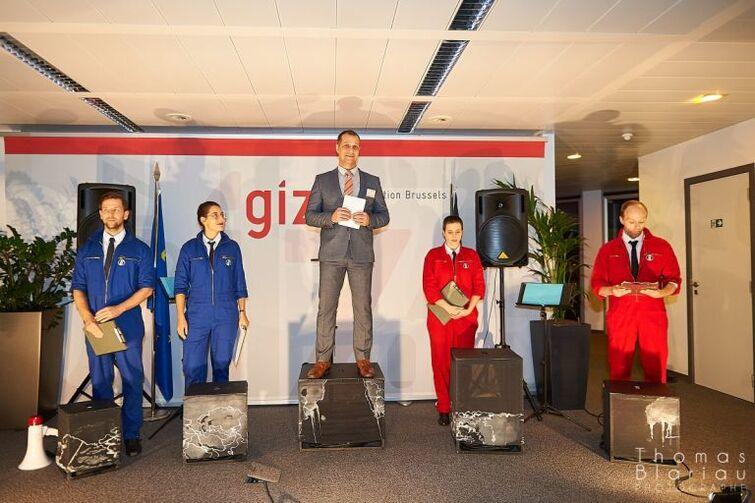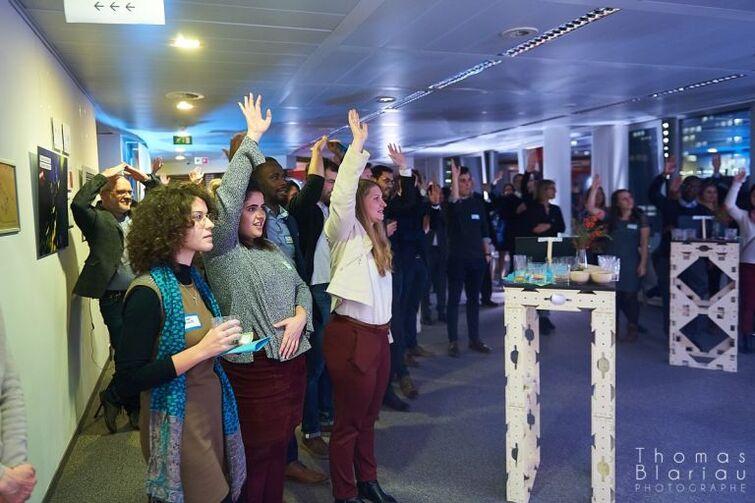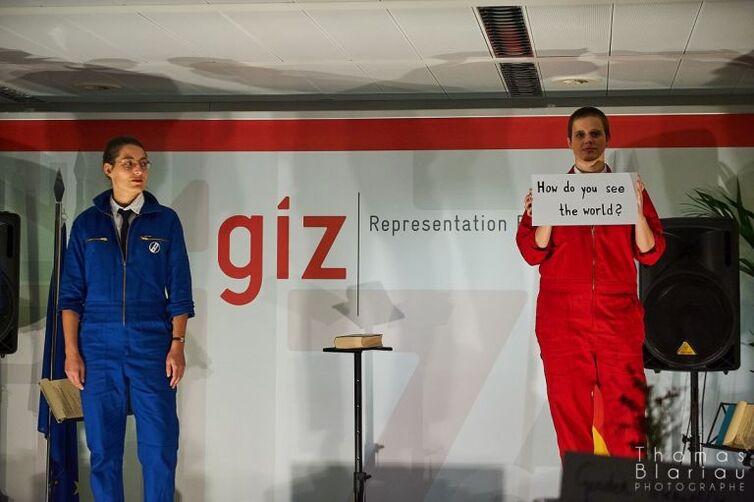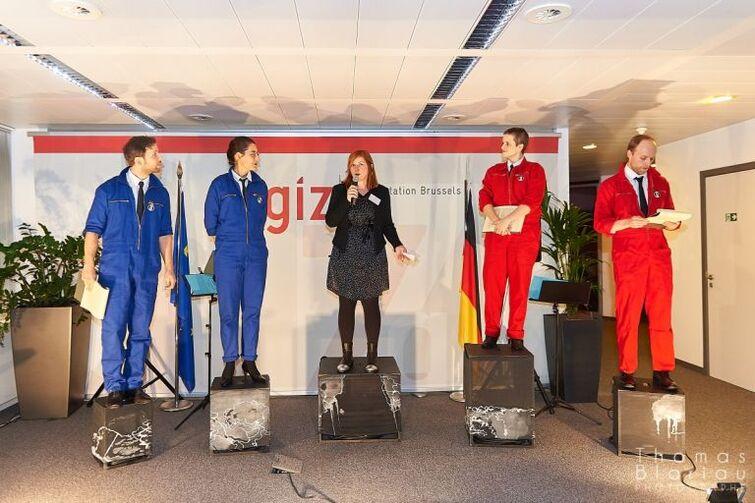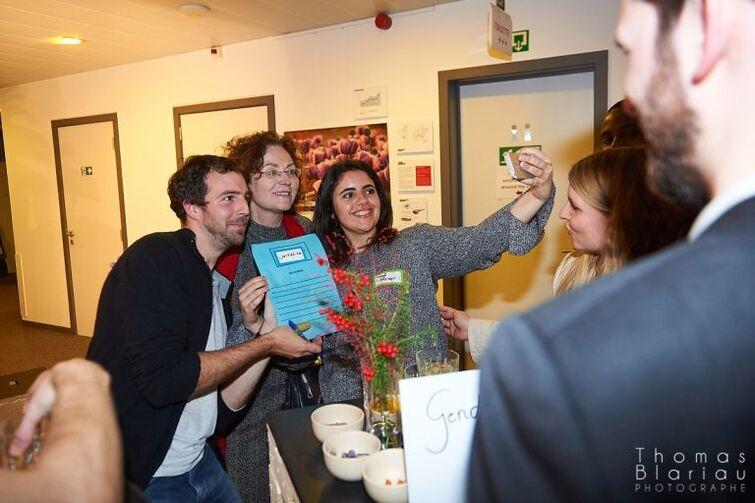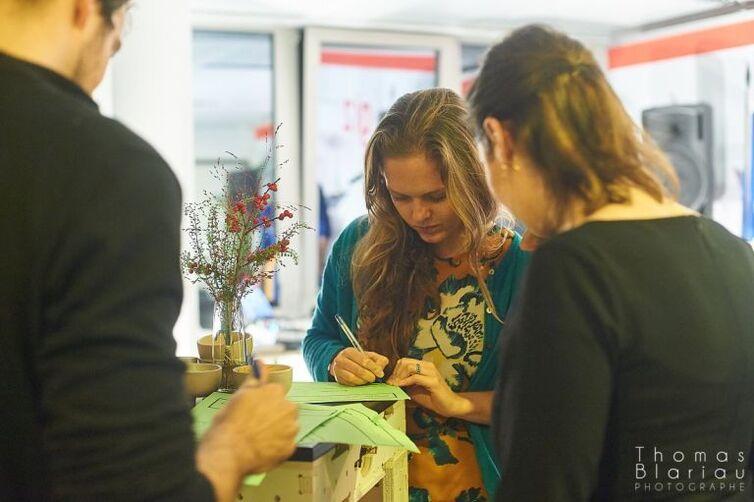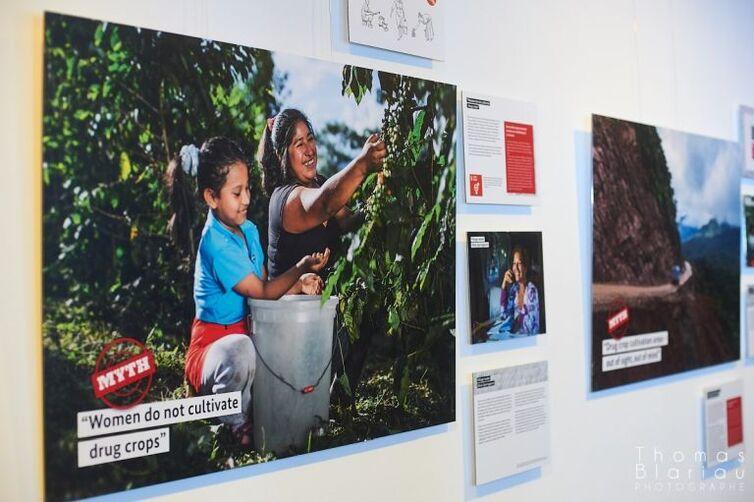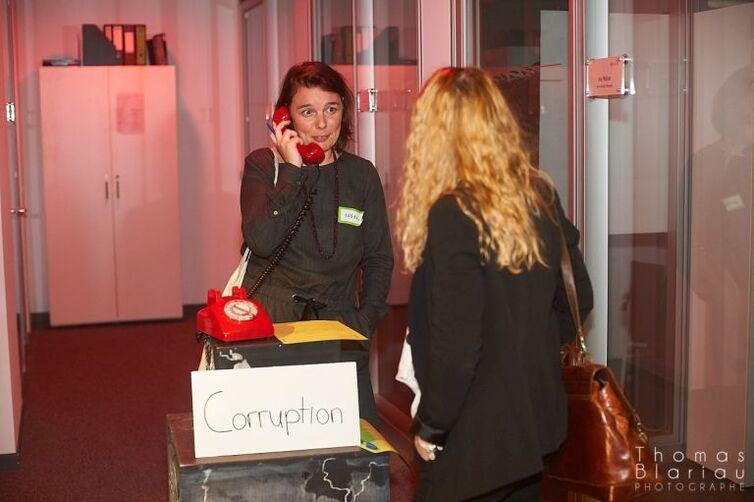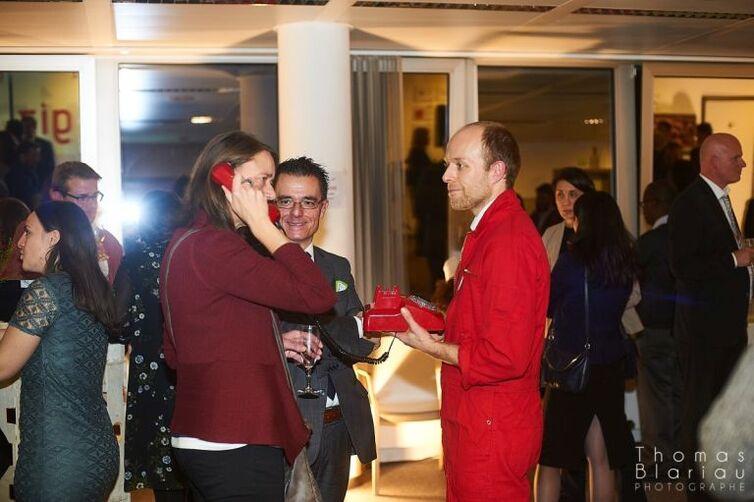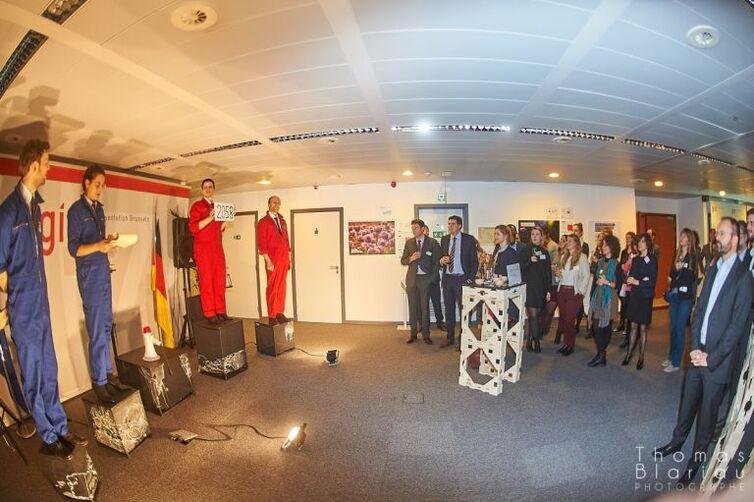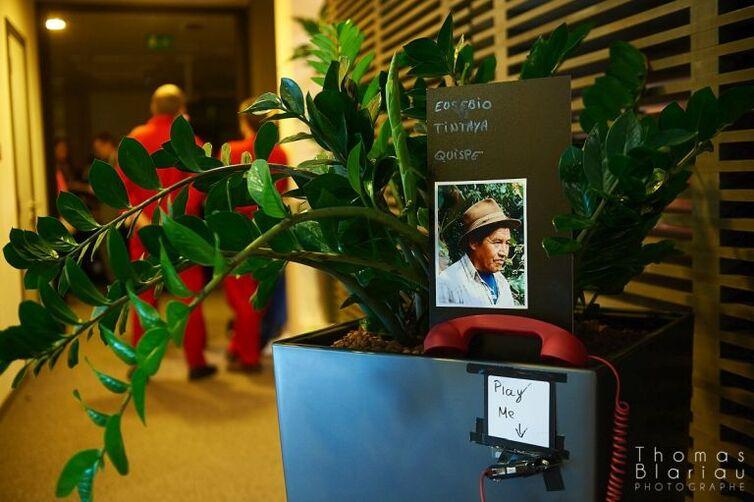From drugs to legal opportunities - An interactive journey to examples of Alternative Development
GIZ´s End of the Year Event took the around 100 guests on a journey to countries such as Bolivia and Peru and back to Brussels bringing along insights into Alternative Development and food for thoughts. Performances and a photo exhibition guided the way.
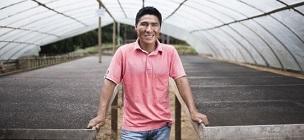
When the red telephone rings
The around 100 guests attending the end-of-year reception at GIZ’s Brussels Representation in early December were caught off guard with a series of unusual questions, challenges and the sudden ring of a red rotary-dial telephone. There was something special about the final event of the year in the Belgian capital – music, interesting guests and cultural elements. This time, the event played host to the Brachland Ensemble, a performing troupe that addresses social issues, improvises or uses its own unique methods to encourage exchange.
In Brussels, the four artists took the guests on an interactive journey towards sustainable and effective approaches to alternative development. But what is alternative development? The concept behind it aims to improve the socio-economic conditions for farmers in drug cultivation areas and enable them to get away from the world of cultivating narcotic crops such as coca and opium poppy. The EU’s updated approach, which was also adopted by the Council of the European Union at the beginning of December, shows just how relevant the issue is at European level, too.
A trip to Peru and Bolivia – and back to Brussels
An exhibition on the life of smallholders in Latin America and Asia illustrated the opportunities and challenges they face. With photos and accounts related by small-scale farmers like Willy Alonso from Peru, the guests learned more about the forgotten link in the drug supply chain and came face-to-face with nine myths about the cultivation of opium, poppy and coca. Drug cultivation has nothing to do with us in Europe, does it? And it makes the people doing it rich, right? Wrong on both counts. Smallholders faced with unclear land rights, poor infrastructure or violence rarely have any other option, and they are stuck at the beginning of the supply chain, earning a meagre income, while the dealers and sellers pull in the major profits. Sarah David from the Sustainable Rural Areas Sector Project explained how GIZ is specifically working on this issue and supporting small-scale farmers in a probing television interview with the Brachland Ensemble.
38 challenges in three minutes
However, the four actors did not just encourage the guests to view the exhibition and listen. They asked questions, developed scenarios, held votes and provided the opportunity for people to contribute their own thoughts. The visitors were even invited to come up with questions and challenges on alternative development from the moment they stepped into the lift. Instead of a name badge, they had a skills badge. Small groups comprising individuals with a good mix of skills were then tasked with finding solutions to specific challenges. Solve 38 problems in three minutes, or have German tax law read to them – the guests at the Brussels Representation chose the quick yet innovative problem-solving option. The guests’ ideas, solutions and statements were ultimately fed into the closing stage production – an optimistic look forward to 2058 to round off the evening.
So, what should you do when the red telephone rings? Answer it? Ignore it? Those who answered the telephone, which moved around the venue throughout the evening, found that it wasn’t just the actors at the other end of the line, but also GIZ colleagues who rang on their mobile phones, inviting guests to engage in a discussion about alternative development. Because, as soon as you get chatting on the phone, you become curious – and the personal exchange that ensues works even better. In fact, it carried on in full swing at a reception with dishes from the smallholders’ home countries, cooked with local, organic produce.
An exhibition goes on tour
The photo exhibition ‘From Coca to Cocaine – the forgotten link in the chain’ will be on display at the Brussels Representation until the end of January.
